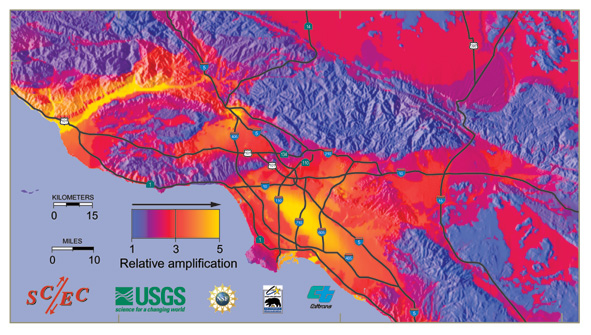Jabberwalker Jabberwalker:
That big, wet low-to-sea-level lying Fraser delta makes the situation there much worse that what they will experience in say, San Francisco or L.A.
Liquefaction is typically a localized impact and not a generalized impact. In San Francisco it was the Marina District in 1989 that suffered the most while other parts of the city were virtually unscathed.
In Los Angeles it's the parts of the region that are built on alluvial soils that would suffer the most.

A funny thing in Los Angeles is that as ground water dries up in certain areas it actually makes the area safer in a quake because the ground is less likely to liquefy.
Orange County, where they have a huge program to recharge ground water aquifers is arguably endangering their county by potentially amplifying damage from a quake.
In the Fraser Delta the same dynamics apply. There will be some places where water will blast out of the ground in a local quake and there will be adjacent areas where the quake will be barely noticed.
In the recent Napa quake here in California we saw the same effect where people in parts of Sacramento observed up to 45 seconds of shaking while other people in town observed none at all. The whole area is underlaid with varying types of alluvial soils and varying amounts of groundwater. It's very similar to the Delta area.
But overall there was no noticeable damage.
If a 9.2 were to hit off of BC then that 7m wave would wreak havoc out on the west coast of the island. But it's going to diminish to around 1m when it gets to the ferry terminal. I don't think it'll cause that much damage.
But liquefaction in the area and amplified shaking might cause localized and severe damage to older buildings and roads in certain places. This will be the bigger source of damage than a tsunami in the Van area.

